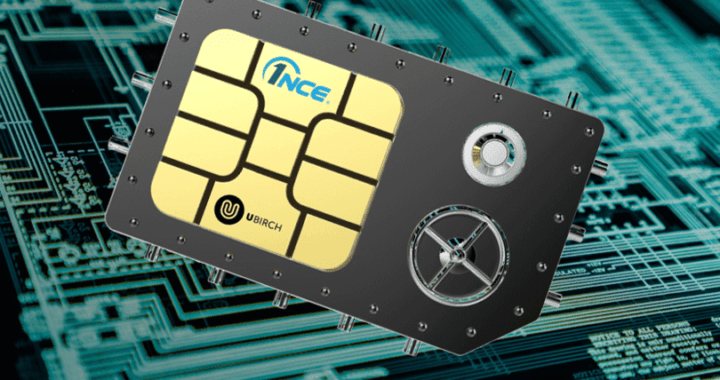Global Roaming: Blockchain SIM cards can have global roaming capabilities, allowing you to use your phone in other countries without incurring hefty roaming fees, eliminating the need to change sim cards when traveling.
It should be noted that they are still a relatively new technology that should be embraced, and not all of these perks may be offered by all providers due to market differences.
Furthermore, like with any new technology, there may be some real challenges and negatives to consider, but if well planned, blockchain SIM cards could be a cutthroat innovation.

Blockchain SIM
Table of Contents
What are Blockchain? The present number of smartphone users in the globe is 6.92 billion. 86.34% of the world’s population owns a smartphone, and a smartphone must use a SIM card to function. SIM is an acronym that stands for Subscriber Identity Module.
The telecoms business has seen more than its fair share of upheaval and, as a result, has grown at a breakneck pace.

As computing and communications converged, the sector faced arguments over privacy and data ownership, and significant corporations soon grew into the behemoths of today.
The technology that enables telecommunications is rapidly developing, and established standards are being challenged.
The SIM card, a mobile phone essential, is becoming obsolete as digital options offer considerable advances.
The cell phones of tomorrow may look familiar, but their technology will be a big leap ahead, and the world is ready for it.
What does Blockchain stand to gain?
For this excellent purpose, the blockchain revolution is gaining traction. The decentralized ledger of blockchain has created the groundwork for concepts such as a decentralized cloud storage network, self-sovereign banks, and transparent voting systems.
More significantly, it has the potential to drastically alter the way our cellphones operate, thus the emergence of blockchain sim cards.

In recent times, the telecommunications industry has been under fire for its obsolescent flair. Blockchain enthusiasts believe that the telecom industry needs to evolve as quickly as possible and that its dependency on some stale methods needs to be replaced with fast, progressive, and evolving technology.
Thus, the telecom industry is embracing blockchain with a pleasant reception. In 2018, blockchain technology in telcos was valued at $46 million; predictions are that it will hit $1 billion in 2023. One of blockchain technology’s offerings to the telecommunications industry is the adoption of blockchain SIM cards.
While traditional SIM cards are not necessarily safe, this offer safe and transparent identification and identity management services powered by the ebullience of blockchain technology. Interestingly, this puts an end to the rise of fraud and illegal network access. Coupled with this is the provision of mobile access in remote and underserved locations.
Do you want to know how it can impact the African market?
Blockchain-based SIM cards can change the dynamics of the African/Nigerian market for good. Considering its inventive posture, these are some of the ways the adoption of blockchain-based SIM cards in Nigeria can do so much good:
Here are the importance
The adoption of blockchain-based SIM cards in Africa, including Nigeria, has the potential to bring about several benefits and opportunities:
- Improved Financial Participation: Blockchain-based SIM cards can enable mobile banking and financial services, providing access to digital assets, microloans, and the digital ecosystem. This can enhance financial inclusion, allowing individuals and organizations to have better access to financial services.
- Advanced Security: Many people have had their conversations and numbers intercepted by hackers, but this will not happen with blockchain SIM cards, since blockchain SIM cards use encryption and decentralized storage to improve the security of mobile communications. End-to-end encryption is provided for voice, SMS, and data, making it more difficult for hackers to intercept or steal information.
- Cross-Border Connectivity: With a large mobile population and people frequently moving across borders in Africa, traditional roaming services can be costly and unmanageable. Blockchain-based SIM cards offer decentralized and borderless connectivity, providing cost-effective communication services and ensuring individuals can stay connected regardless of their location. This improves collaboration and attracts investors to the African market.
Global Roaming: Blockchain SIM cards can have global roaming capabilities, allowing you to use your phone in other countries without incurring hefty roaming fees, eliminating the need to change sim cards when traveling.
Furthermore, like with any new technology, there may be some real challenges and negatives to consider, but if well planned, blockchain SIM cards could be a cutthroat innovation.
While the introduction of blockchain-based SIM cards in Africa and Nigeria may require infrastructure development and regulatory considerations, their potential to address current challenges and open new opportunities makes them a promising solution for the region’s market.
For other related searches and topics, visit

